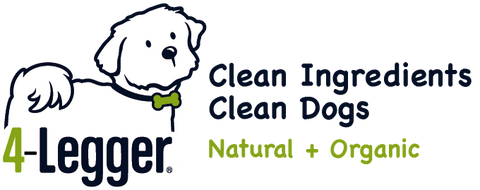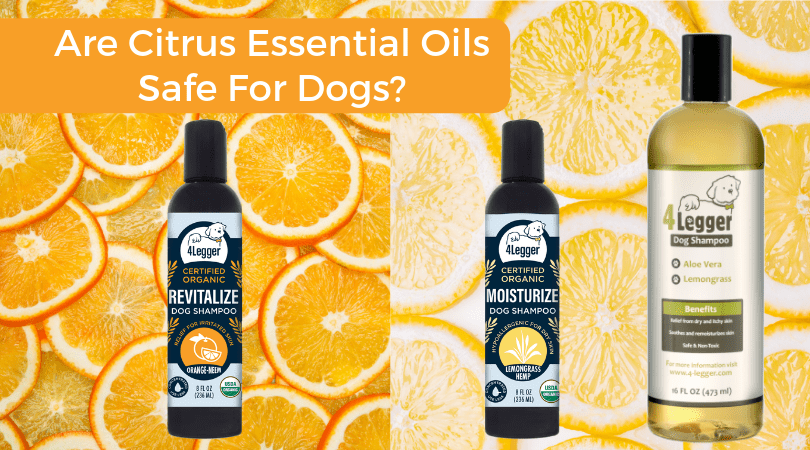Are Citrus Essential Oils Safe For Pets?
This morning we had an email that asked the following question about the use of citrus essential oils with animals:
"I’ve read a ton of articles that have said NOT to use Citrus (lemon) or orange around pets that they are two scents on the unsafe side. Yet you’ve got blends with citrus and orange and you say they are safe? Please explain ~ thanks."
I Googled to find these articles and was very surprised (and a little angry) to read their non-scientific sweeping statements.
The fact is, the "ton of articles" the customer read are just plain wrong. Period.
It seems as if one inaccurate article on the internet spawns many inaccurate articles perpetuating an unbelievable amount of misinformation. When one website copies inaccurate information from another website to build their own the false information gains credibility simply because it is being repeated. In this case, Google is not your friend nor a provider of scientifically documented research and information. We've cited our two favorite books for information at the bottom of this article. If you want a deep dive on essential oils, they will be your best friends!
One article said, "Essential oils are powerful".
To be accurate, it should have said, "High quality essential oils are powerful healers while low quality or adulterated essential oils are dangerous and potentially toxic."
We regularly use essential oils with our own dogs in their bath, water based diffusion, topical application, and at times oral ingestion.
The biggest issues with essential oils is quality and marketing. To learn more about quality and the marketing of essential oils, check out our article on essential oil quality and the safe use of essential oils with animals.
The summary of the article is this:
- A low quality or adulterated essential oil is not safe for you or your dog.
- High quality essential oils are both safe and beneficial.
Who Can You Trust When It Comes to The Safe Use of Essential Oils?
With the rise in popularity of essential oils, there has been a lot of synthetic, adulterated oils manufactured, combined with dishonest marketing of essential oils by companies who just want to make money.
4-Legger is committed to developing safe and non-toxic products using true all natural ingredients. Many of our products bear the coveted USDA organic seal recognized worldwide as the gold standard for natural products and all of our products meet the high standards of the National Organic Program.
All of the ingredients for all of our products are reviewed by a third party to ensure they are what we say they are. They must be unadulterated. That means you can't add anything to them like mixing some synthetic ingredients in to make the scent last longer, etc.
We immerse ourselves in the latest scientific data.
Dr. Melissa Shelton, DVM is a holistic veterinarian regarded as the world’s authority on the use of essential oils in both veterinary care and routine usage. We completed Dr. Shelton's seminar on the use of essential oils with animals to go beyond GC/MS (gas chromatography / mass spectrometry) data on essential oils in order to select essential oils that are truly the best of the best. She is also who develops the animalEO essential oils we sell on our website.
Let's talk specifically about the two citrus essential oils identified in the email and discuss the actual scientific data on essential oils to dispel the myths.
Is Lemongrass Essential Oil Safe for Dogs?
One of my favorite essential oils, lemongrass is a perennial grass with a citrus scent.
Lemongrass has powerful antifungal action, regenerates connective tissue and ligaments, improve circulation, promotes lymph flow, is an anti-inflammatory, antibacterial, and anti-parasitic. It is useful for a multitude of conditions and is a natural astringent (cleanser) with toning qualities which help stimulate blood circulation and tone up dermal tissue. Used in aromatherapy, it is known to revitalize the mind and soul! Lemongrass is also a natural pest deterrent - for lice, fleas, and ticks.
It has GRAS (generally regarded as safe) status and can be used on all species of animals from birds and exotics to cats, dogs, horses and more.
For use on your dog's skin, lemongrass is recommended to have maximum dermal use level of 0.6% citral.
Citral is the addition of 2 of the lemongrass' key constituents geranial and neral key constituents) Citral is approximately 65% - 85% in lemongrass essential oil.
- geranial: 45.18%
- neral: 33.09%
In this example, this batch of lemongrass is 78.27% citral. All of the key constituents are well within the high quality unadulterated levels and it is truly an exceptional essential oil.
The lemongrass would be diluted in the shampoo to levels below 0.6% citral to ensure the shampoo is well within the safety guidelines to not have sensitization reactions.
The science of essential oils is complex. It goes beyond just selecting essential oils that smell good. We want that, but we also want essential oils that are safe, non-toxic, and beneficial for use with animals.
This lemongrass is in both our lemongrass shampoos!
- USDA Organic Hemp Dog Shampoo with Lemongrass
- USDA Organic to Human Grade Food Standards Lemongrass and Aloe Dog Shampoo
Is Orange Essential Oil Safe for Dogs?
Orange essential oil has been used extensively in all species of animals and has GRAS (generally regarded as safe) status.
Orange essential oil is indicated for cancer, depression, anxiety, support of the liver and lymph system and to support good health in general.
This sweet orange is also packed with natural Vitamin C to promote the production of collagen and repair skin. It reduces inflammation and bacteria, lifts the spirits and promotes healthy skin.
You are probably thinking ... "Orange essential oil sounds great. Why would any website have something negative to say about it?"
The problem comes from lack of knowledge and education.
Citrus essential oils contain d-limonene (insecticidal properties) other key constituents.
One of the inaccurate articles on the internet said "when these constituents are ingested by a dog it is metabolized in the dog's liver and causes toxicity, poisoning, liver failure or liver damage".
In their reference book, Tisserand and Young* identified a dose of greater than 5 grams per kg of weight to achieve toxicity.
That is an extraordinarily high amount of pure undiluted essential oil that is just not possible to achieve through normal safe use.
Our high quality essential oils are diluted in all of 4-Legger's shampoos. They are safe, non-toxic and beneficial for use with animals. The quality of any essential oil is always a key factor on whether it can be safely used with animals or not.
You can find sweet orange essential oil in our USDA Organic Neem Dog Shampoo with Sweet Orange Essential Oil
We get a lot of emails that ask great questions like the one we received this morning. Because our mission at 4-Legger is to develop safe, nontoxic products and to provide an educational resource for pet parents to learn about ingredient purity and product integrity, we are always willing to help answer the hard questions.
Sources:
Melissa Shelton, DVM. The Animal Desk Reference, Second Edition. Essential Oils for Animals. 2018.
Robert Tisserand and Rodney Young. Second Edition, Essential Oil Safety. 2014.





